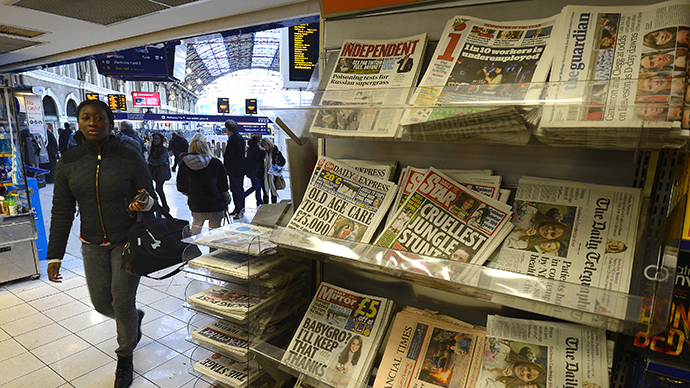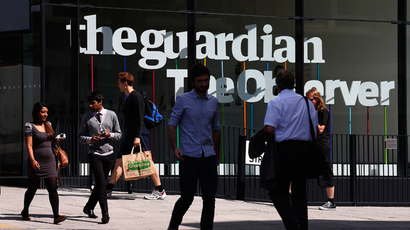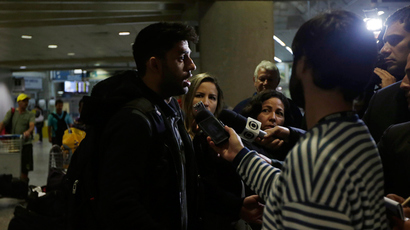Global media watchdogs to investigate press freedom in the UK

Plans by the UK to increase press regulation will come under scrutiny this week as global media watchdogs carry out an inquiry set to focus on the confrontation between the government and The Guardian over the NSA and GCHQ leaks.
Media watchdogs will be in London January 15-17 to investigate the British government’s crackdown on the press, and will issue a report next month.
[The organization's membership is] "deeply concerned by the British authorities' treatment of the profession of journalism and its attempts to control the public debate," said Vincent Peyrègne, CEO of the World Association of Newspapers and News Publishers (WAN-IFRA) which organized the mission.
The members of WAN-IFRA, along with the International Association of Broadcasting, the International Press Institute, the World Press Freedom Committee, the Inter-American Press Association and Committee to Protect Journalists will hold meetings with the Secretary of State for Culture Maria Miller, the Chairman of the Culture Select Committee John Whittingdale and Guardian editor Alan Rusbridger. They will also talk to freedom of expression and civil society groups, professional bodies, various industry representatives and academics.
“The British government’s actions have far reaching consequences across the globe, and any threats to the independence of journalism in Britain could be used by repressive regimes worldwide to justify their own controls over the press,” Peyrègne said.
“We will endeavor to investigate all elements that threaten the United Kingdom’s position as a bastion for free and independent media,” he added.
We can't take press freedom for granted; international mission begins investigating practices in United Kingdom. http://t.co/oDrIxoCiWt
— WAN-IFRA (@NewspaperWorld) January 15, 2014
An ‘unprecedented’ international mission decided to probe UK media freedom amid increasing concern over the country’s press freedom laws.
In October, PM David Cameron accused The Guardian of damaging national security by publishing sensitive data provided by ex-NSA whistleblower Eduard Snowden. He said that if The Guardian cannot be trusted to protect issues of national security then the government will be forced to issue a ‘D notice.’ (This is an official request to news editors not to publish or broadcast items on specified subjects for reasons of national security and will force them not to publish any further intelligence revelations).
Rusbridger was asked in December by British lawmakers about the case [of publishing of intelligence files leaked by Snowden].
Rusbridger strongly defended his newspaper’s publication of the Snowden leaks.
Prior to the parliamentary hearing, former Guardian journalist Glenn Greenwald, who first broke the story on whistleblower’s revelations, had tweeted that he thought the parliamentary hearing would be like an inquisition. The World Association of Newspapers and News Publishers, or WAN-IFRA, is the main global organization representing media publishers and editors, which represents more than 18,000 publications, 15,000 online sites and over 3,000 companies in more than 120 countries. Its mission is to defend press freedom, quality journalism and the economic independence of newspapers.
“The mission is a direct response to recent actions widely seen as contrary to press freedom guarantees… and…will also include discussion of the criticism of The Guardian for its coverage of the revelations from former US National Security Agency contractor Edward Snowden,” WAN-IFRA stated in November.
This is the first WAN-IFRA mission to the United Kingdom. Previous press freedom missions included such countries as Ethiopia, South Africa, Libya, Yemen, Tunisia, Mexico, Honduras, Ecuador, Colombia, Guatemala, Ukraine, Azerbaijan and Myanmar.














